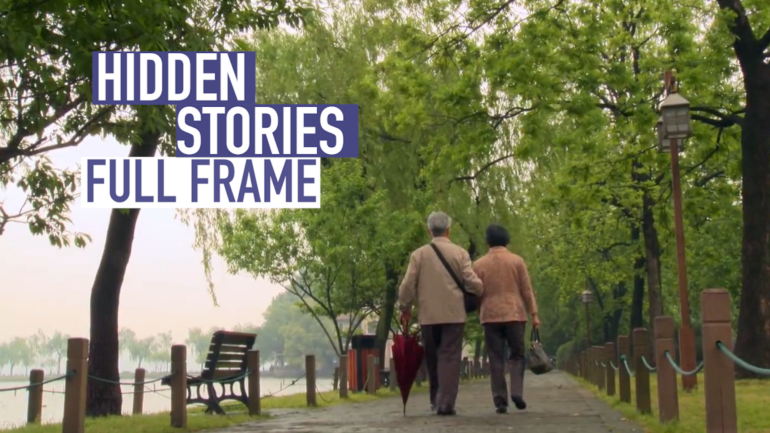Full Frame speaks to three individuals who have put their heart and soul into uncovering stories hidden away for years, and in some cases, generations. What do you these discoveries tell us about our past? And what do they reveal about the world we live in today?
A secret language for and by women
Nushu is a language that was developed and used exclusively by women in China’s Hunan Province. Through songs, poetry and other art forms, women secretly communicated with each other, swapping stories and sharing their struggles. This once-clandestine language is now seeing a resurgence, as documented by the film Hidden Letters, directed by Violet Feng.
“Hidden Letters is a story that started about 400 years ago in feudal society, when women had bound feet, were locked in the chamber room, deprived of their rights to education in China,” Feng said. “In this secluded village, there’s a group of women who decided that they are going to create their own language by sharing poems and songs to give each other hope and dignity.”
The documentary follow the two main characters as they navigate being independent women in modern China, while still facing barriers because of their gender.
“There is … still a mindset of what a man is supposed to be, where a woman is supposed to be,” Feng said. “So for me, [the film] really shows where the gap is and how do we really engage a conversation.”
The legacy of a little-known ‘American icon’
Elsie Robinson was a star writer, who seemed to vanish without a trace. Starting in the 1920s, Robinson built a writing career that spanned nearly four decades, becoming one of the most well-read columnists in the United States.
Allison Gilbert’s biography of Robinson, Listen, World!, aims to “restore the legacy of this incredible American icon.”
“I love the part of Elsie Robinson’s story that has nothing to do with journalism, and that may surprise you,” Gilbert said. “The part of the story that I think speaks to most readers is that no matter what you want to do, if you don’t have money, if you don’t have contacts in the business or the profession that you want to go into, how do you get there? What is in you that gives you that resolve to keep going despite every obstacle that would warn you?”
Robinson was born in 1883 in Benicia, California, into a family of few means. Married young, then divorced and left to care for a sick son, she tried her hand at other jobs before her writing career took off. Her syndicated Hearst column “Listen, World!” was read by millions of Americans daily. Her writings on social issues are still relevant in today’s world.
“I find her to be a timeless writer, which is why it’s so heartening to kind of resurrect her legacy,” Gilbert said. “I think when I read her words about capital punishment, about racism, about feminism, gender equality, these are all things that we’re still talking about today, which is why it’s been so much fun to make sure everyone knows the name, Elsie Robinson.”
Urban explorer pieces together story of Baltimore’s history
Baltimore resident Evan Woodard calls himself an urban explorer. For him, the smallest piece of trash can tell you much about the past. He travels to unlikely places to rescue artifacts left behind centuries ago.
“I was finding artifacts … while hiking out in the woods. So these were like old beer bottles from the turn of the century, so very early 1900s, some of them even the 1800s, he said.
During the pandemic, he started posting his discoveries on the Instagram account @salvagearc.
 CGTN America
CGTN America
